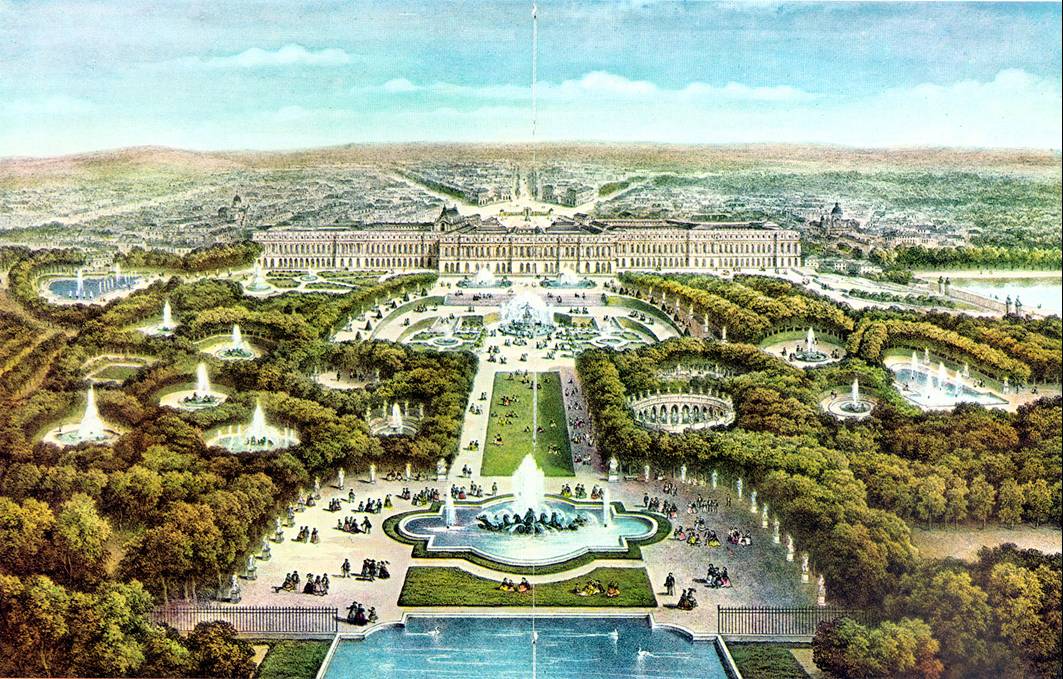 Chateau
de Versailles, Louis XIV's palace
Chateau
de Versailles, Louis XIV's palaceSOME NOTES AND QUESTIONS RELATIVE TO VOLTAIRE'S CANDIDE (1759)
Things that are characteristically 18th-century about Candide:
Testing a mental construct, an idea, against common sense and the reality of the world.
Attitudinal distance from traditional moral premises of church and state
Freedom to look candidly at authority and be critical
Worldly, satirical tone
Interest in the question of whether the world is increasingly perfect (but no firm conviction that humans are perfect)
Picture of existence as urban, social; meaning and value increasingly derived from human interactions
Some attitudes toward EVIL during Voltaire's lifetime:
John Calvin: God is infinitely good; humans are sinful from birth. Evil is deserved and originated in human disobedience to God.
The Manichean point of view: The universe is ruled by two equal powers, good and evil.
Pierre Bayle, French Huguenot writer, died 1706: God is either good and not omnipotent (since he evidently can't eradicate evil), or he is omnipotent and not entirely good (since he seems to permit evil).
Leibniz, Theodicée, 1710, popularized by Christian Wolff: This is the best of all possible worlds; evil is temporary; humans can't see God's full plan; we have to take a long view.
Impact of Newtonian science: Questions of good and evil have no meaning. It's the best of all possible worlds because it's the ONLY possible world. Universe operates according to mathematical principles. God is not an active moral agent in the universe--rather, a clockmaker.
How would you describe Voltaire's STYLE?
What are the advantages of seeing events through Candide's eyes?
What reasons does Voltaire seem to offer for the presence of evil in the world?
Is there a God implied in Candide?
What are Voltaire's complaints with Leibnizian optimism (represented by Pangloss)?
Why is El Dorado perfect? Why does Candide leave it?
Is Voltaire a misanthropist? What's a misanthropist?
Does the character of Martin, do you think, speak Voltaire's views? If not, do ANY of the characters speak Voltaire's views?
Is the work a love story?
What does Candide learn in the end?
 Chateau
de Versailles, Louis XIV's palace
Chateau
de Versailles, Louis XIV's palace